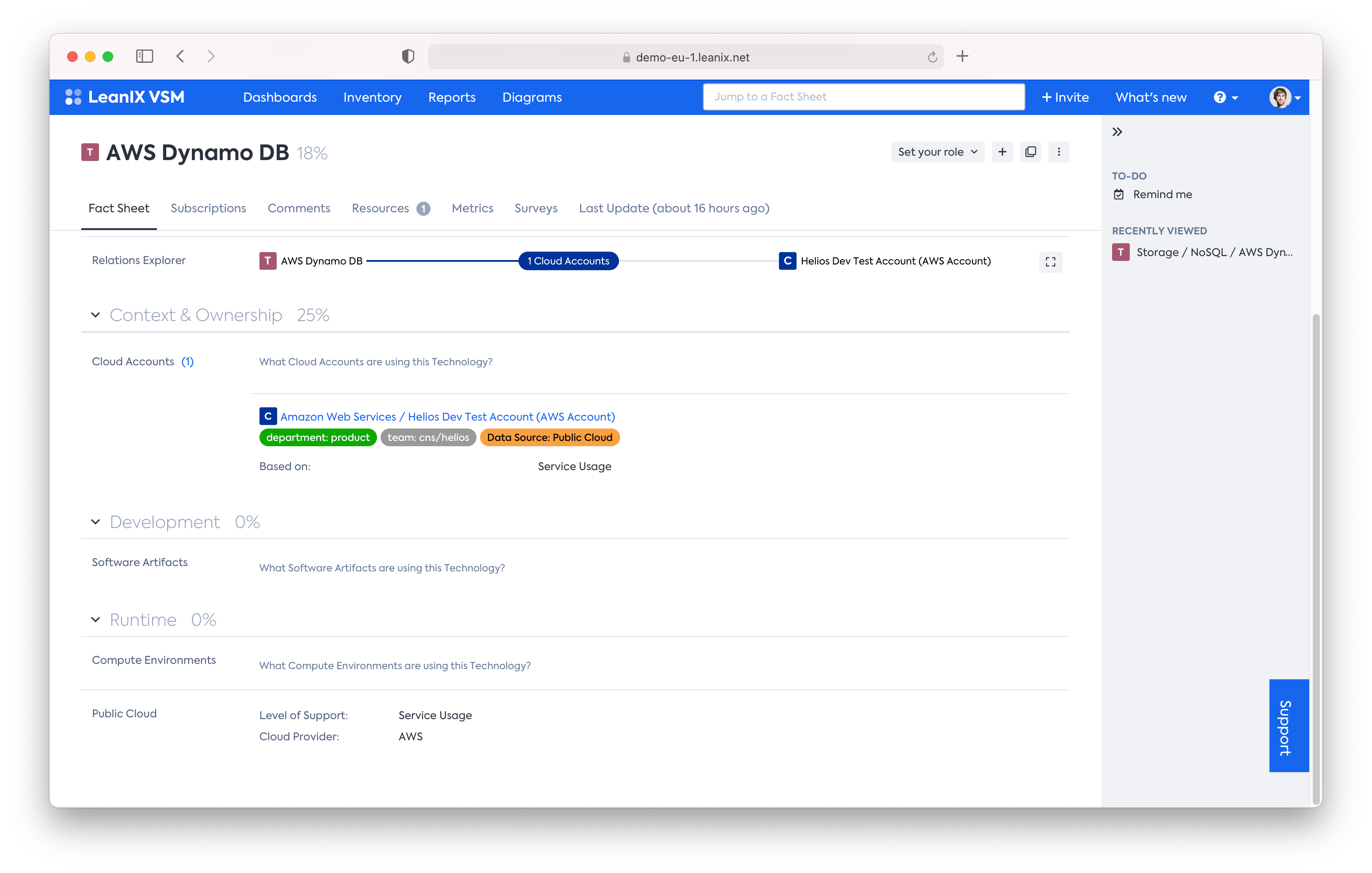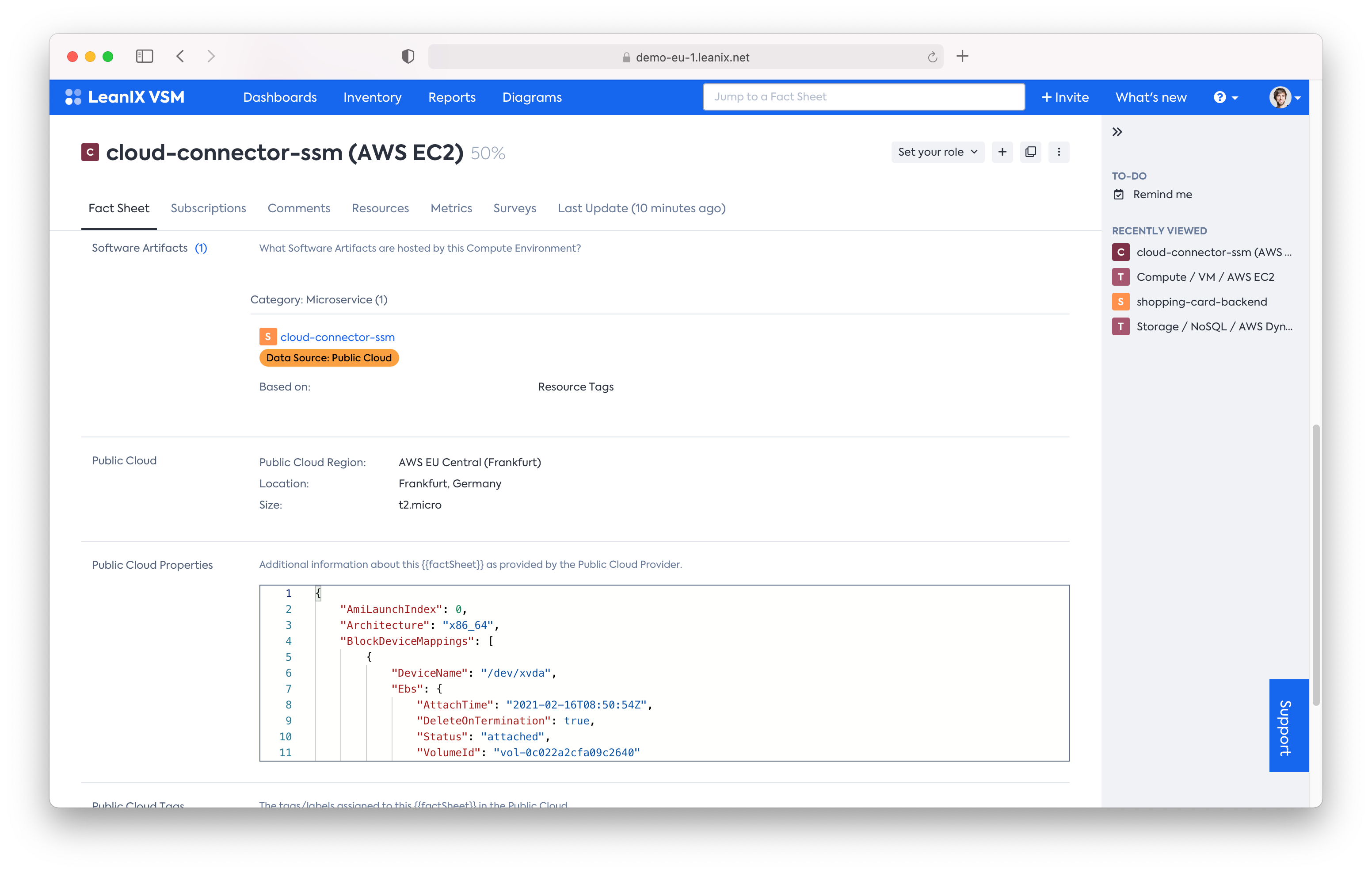- DATE:
- AUTHOR:
- SAP LeanIX Product Team
- RELATED ROADMAP ITEMS:
- Adding Public Cloud Data to the VSM to EAM integration
- Public Cloud integration - Cloud Spend extraction per Software Artifact & Cloud Account
Weekly roundup of improvements and fixes
1) Public Cloud integration improvements
We have extended the data scope of our Public Cloud integration to cover service usage, cloud spend, and size:
AWS Dynamo DB Service Usage per AWS Account: we now extract the AWS Dynamo DB Service per AWS Accounts. This is captured on the relation of the respective Cloud Service and a Cloud Account with the value "Service Usage" in the “Based on” attribute. Additionally, the Cloud Service Fact Seet will be flagged with “Service Usage” in the "Level of Support" attribute in the Runtime section. With the "Service Usage" flag users can distinguish these Cloud Services from others such as AWS EC2 or Azure Virtual Machines for which the integration creates dedicated Cloud Environment Fact Sheets. Please consult our product documentation for a list of supported Cloud Services.

Cloud Spend per Software Artifact from Cloud Account: The relation between Software Artifact and Cloud Account now displays cloud spend based on "Account Tags" from AWS Accounts, Azure Resource Groups, or GCP Projects as "Cloud Spend Yesterday" and "Cloud Spend Last 30 Days". The account-level cloud spend is furthermore displayed on the respective Software Artifact Fact Sheet.

Cloud Service size extraction: For cloud resources representing a Virtual Machine such as AWS EC2, Azure Virtual Machine, Azure Virtual Machine Scale Set, GCP Compute Instances, we now extract their size and display it on the respective Fact Sheet. For example "t2.micro".

2) VSM to EAM integration fix
We now only create one backlink to respective Fact Sheets to provide a better user experience. Previously, once changes were made to an underlying Fact Sheet in the source workspace, multiple and oftentimes redundant backlinks were created in the target workspace (EAM or VSM). This is now fixed.
3) Include license names in LDIF
As part of extending the processing logic of CI/CD calls, users can now use license information available as part of the supported package manager dependency files in the custom processors. This will allow users to leverage that information with regard to license use cases.